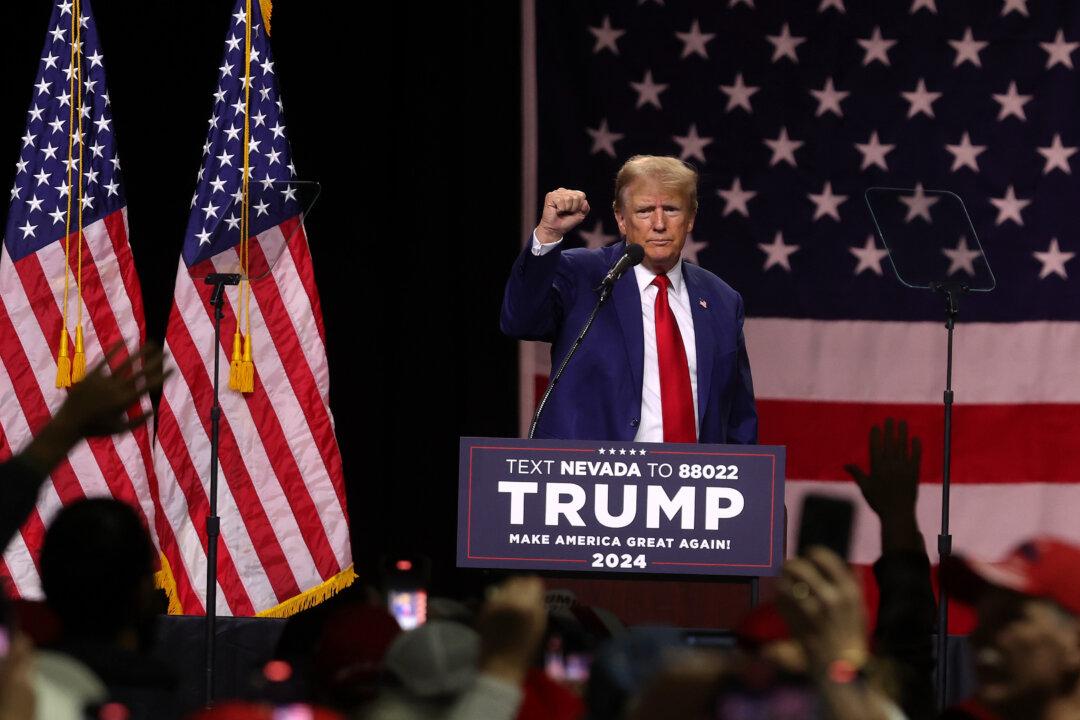Activist group Free Speech for People (FSFP) has filed another lawsuit challenging former President Donald Trump’s eligibility as a candidate, this time in Massachusetts.

Republican Presidential candidate former President Donald Trump gestures during a campaign rally at the Reno-Sparks Convention Center in Reno, Nev., on Dec. 17, 2023. Justin Sullivan/Getty Images




